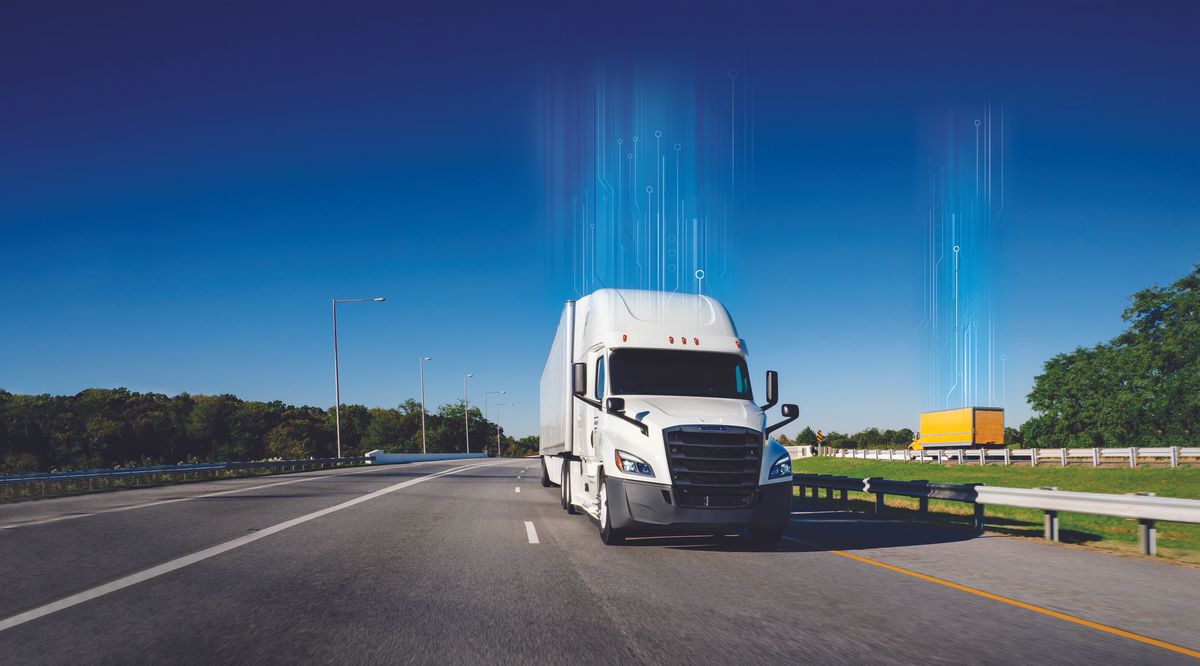
Charting Progress: Fleet Leaders Lean into AI to Navigate the Road Ahead
The transportation and logistics sector is moving past AI curiosity and into real-world application. According to Penske’s newly released 2025 Transportation Leaders Survey: A Road to AI Adoption, fleet leaders are steadily embracing artificial intelligence (AI) and seeing measurable returns — even as traditional practices and implementation concerns linger.
In what marks a turning point for the industry, 70% of companies now report adopting AI solutions — up 17 percent from 2024. And that investment is paying off. Fleet executives cite improvements in fleet planning (36%), route optimization (35%), and operational efficiency (34%) among the top gains realized over the past year.
But the transformation is just beginning. While optimism is growing, 84% of executives still believe the industry lags behind others in adopting AI — up 20 percent since 2024. The results paint a picture of an industry gaining confidence in AI’s value while acknowledging the work ahead to fully harness its potential.
From Potential to Performance
The data reveals a shift from theoretical benefit to tangible impact. About four in ten respondents say their organizations have achieved at least 50% savings in fuel costs, operational expenditures, and distance traveled through AI-powered route optimization.
Leaders are also seeing gains in driver safety, customer satisfaction, and visibility across the supply chain — a clear sign that AI is becoming integral to fleet operations. And this momentum isn’t isolated. More than nine in ten (91%) of executives believe organizations that adopt AI are better positioned for future growth.
Persistent Challenges and Emerging Risks
While leaders recognize how AI can help future-proof their operations, many are still struggling to navigate current challenges. Rising costs (52%), supply chain disruptions (45%), and managing fleet operations (40%) continue to challenge executives. In fact, fleet operations jumped 10 percent as a top concern year-over-year, indicating increasing complexity as fleets grow and customer expectations rise.
The report also highlights a stark contrast between innovation and legacy mindsets: 94% of respondents still rely on traditional annual forecasting to guide fleet planning. At the same time, nearly all (97%) agree that benchmarking with real-time data is becoming essential to navigate economic uncertainty and sudden market shifts.
Leadership Is Aligned, But Caution Remains
One promising insight: leadership is largely on board. 93% of respondents say their senior teams understand the value AI brings to supply chains and fleets. And looking ahead, 91% agree it’s critical for the next generation of fleet and logistics professionals to be equipped with AI-enabled skills and tools.
However, concerns around AI’s risks haven’t diminished. Security risks (49%), limited regulation governing (36%), and fears of unethical use (35%) are top of mind. These findings highlight the need for strategic, responsible adoption that balances innovation with transparency and trust.
Looking Ahead
The 2025 survey makes one thing clear: AI is no longer a concept on the horizon — it’s a practical tool reshaping how fleets operate. Organizations that have embraced AI are already reaping the benefits, and the foundation is being laid for broader, more transformative adoption in the years ahead.
As the industry continues to evolve, success will hinge on bridging the gap between emerging technology and traditional practices, all while building trust in the systems that drive the future of fleet management.
By: Tana Korpics
Survey Methodology – The second edition of The Transportation Leaders Survey: A Road to AI Adoption was conducted online by Big Village among a sample of 255 U.S. adults 18 years of age and older who are owners, founders, or executive leaders or decision makers of a Transportations or Logistics businesses. This survey was live April 16-23, 2025
